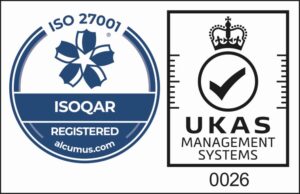Exploring the Benefits of Outsourcing IT Infrastructure to MSPs
Outsourcing IT infrastructure to Managed Service Providers (MSPs) has become an increasingly popular choice for businesses of all sizes. MSPs offer a range of services and expertise that can help organizations streamline their IT operations, enhance efficiency, and focus on core business objectives. Here are some key benefits of outsourcing IT infrastructure to MSPs:
Cost Savings
Outsourcing IT infrastructure to MSPs can lead to significant cost savings for businesses. MSPs typically offer flexible pricing models, allowing businesses to pay for the services they need, when they need them. Instead of investing in expensive hardware, software licenses, and IT personnel, businesses can leverage the infrastructure and expertise of MSPs, reducing capital expenditures and operating costs.
Access to Expertise and Experience
MSPs specialize in managing IT infrastructure and possess deep knowledge and experience in various technologies and industry best practices. By outsourcing to MSPs, businesses gain access to a team of skilled professionals who are up-to-date with the latest trends and advancements in IT. MSPs can provide strategic guidance, recommend solutions, and ensure that the IT infrastructure is aligned with the organization’s goals and objectives.
Enhanced Scalability and Flexibility
As businesses grow and their IT needs evolve, MSPs can easily scale their services to accommodate changing requirements. MSPs offer flexible infrastructure solutions, allowing businesses to quickly adapt to fluctuations in demand without the need for significant investments in additional hardware or personnel. This scalability and flexibility enable businesses to respond to market demands more effectively and avoid the limitations of traditional on-premises infrastructure.
Improved Focus on Core Business
By outsourcing IT infrastructure management to MSPs, businesses can free up valuable internal resources and focus on their core competencies. Instead of allocating time and effort to managing IT systems and troubleshooting technical issues, internal teams can concentrate on strategic initiatives and activities that directly contribute to the organization’s growth and success. MSPs handle the day-to-day IT operations, allowing businesses to optimize their resources and increase productivity.
Proactive Monitoring and Support
MSPs provide proactive monitoring of IT infrastructure, ensuring that potential issues are identified and addressed before they cause significant disruptions. They employ advanced monitoring tools and techniques to monitor system performance, network security, and availability. MSPs can provide 24/7 support, rapidly responding to incidents, and resolving issues to minimize downtime and mitigate the impact on business operations.
Enhanced Security and Data Protection
MSPs prioritize security and data protection, implementing robust measures to safeguard business-critical information. They have extensive experience in managing security risks, implementing firewalls, intrusion detection systems, encryption protocols, and backup solutions. MSPs stay abreast of emerging threats and industry compliance requirements, helping businesses maintain a secure and compliant IT infrastructure.
Continuous Technology Upgrades
Technology is constantly evolving, and keeping up with the latest advancements can be challenging for businesses. MSPs are responsible for staying current with emerging technologies and upgrading IT infrastructure accordingly. By outsourcing to MSPs, businesses can benefit from the latest software updates, hardware upgrades, and technology innovations without having to invest in costly equipment or dedicate internal resources to constant technology evaluation and implementation.
Business Continuity and Disaster Recovery
MSPs play a crucial role in ensuring business continuity and disaster recovery. They have robust backup and recovery solutions in place to protect data from potential disruptions, such as natural disasters, hardware failures, or cyber-attacks. MSPs can develop comprehensive disaster recovery plans, perform regular data backups, and conduct recovery drills to minimize downtime and ensure the organization can quickly resume operations in the event of a crisis.
Outsourcing IT infrastructure to MSPs offers numerous benefits, including cost savings, access to expertise, scalability, improved focus on core business activities, enhanced security, and continuous technology upgrades.




